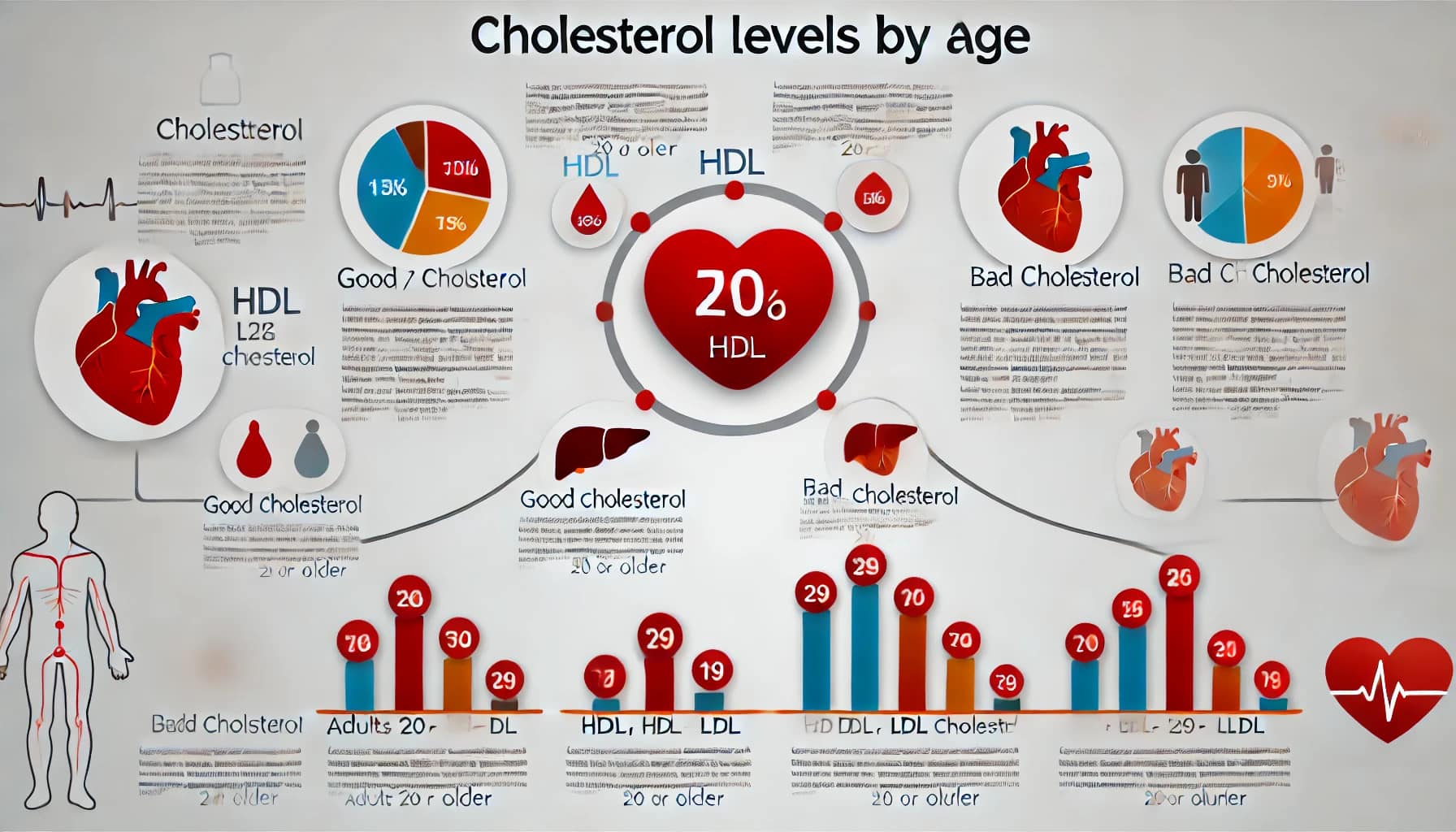Maintaining healthy cholesterol levels is essential for heart health and reducing the risk of cardiovascular diseases. Cholesterol levels can vary by age, gender, and other factors, making it important to understand what constitutes healthy levels for different demographics. Here are ten key points about cholesterol levels by age:
- Understanding Cholesterol
Cholesterol is a waxy substance in your blood necessary for building cells, but too much can increase heart disease risk. - Total Cholesterol Levels
For adults, total cholesterol levels should ideally be less than 200 mg/dL. For children and teens, the target is less than 170 mg/dL. - LDL Cholesterol
Known as “bad” cholesterol, LDL should be less than 100 mg/dL for adults. High LDL levels can lead to plaque buildup in arteries. - HDL Cholesterol
Referred to as “good” cholesterol, HDL should be 40 mg/dL or higher for men and 50 mg/dL or higher for women. Higher HDL levels can reduce heart disease risk. - Triglycerides
These are the most common type of fat in the body. Levels should be less than 150 mg/dL for adults to maintain heart health. - Age Matters
Cholesterol levels tend to rise with age. Children and teens have different target levels compared to adults. - Gender Differences
Before menopause, women usually have higher HDL levels than men. Post-menopause, women’s LDL levels may increase, raising heart disease risk. - Lifestyle Impacts
Regular exercise, a healthy diet, and maintaining a healthy weight can positively influence cholesterol levels. - Dietary Choices
Reducing intake of saturated fats and trans fats, while increasing consumption of fruits, vegetables, nuts, and whole grains can help manage cholesterol. - Regular Screening
Adults aged 20 or older should have their cholesterol checked every 4–6 years. Those with risk factors may need more frequent checks.
Understanding and managing cholesterol levels is crucial for heart health at any age. For more details, consult resources from trusted health organizations like the American Heart Association and the National Institutes of Health.








